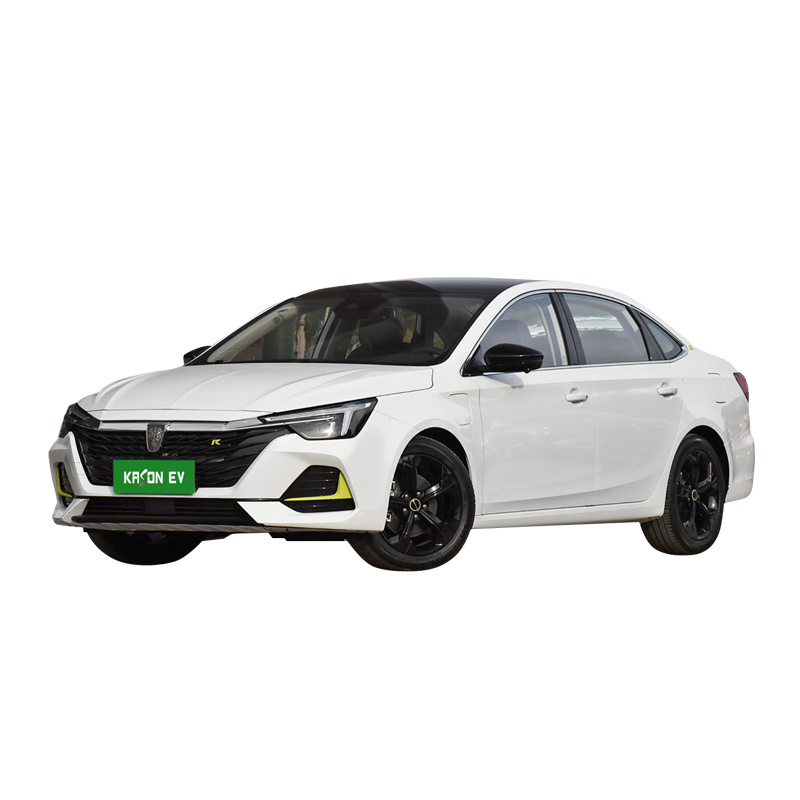In-depth reporting, data and actionable intelligence for policy professionals – all in one place.
German carmakers are most exposed to any possible Chinese retaliation, while France is more relaxed. Most Reliable Trucks 2020

Press play to listen to this article
Mirror, mirror on the wall, who has the greatest green industrial policy of them all?
The opening of an EU investigation into imports of Chinese electric vehicles (EVs) has exposed a fundamental European rift over the right course for Europe's industrial strategy. Is Gallic autonomie stratégique the right way to go? Or the Teutonic reflex to maximize trade surpluses über alles?
And it has revealed a depressing truth for Europe Inc: Beijing has just done it better, faster.
In firing up its trade defense machinery, Europe is being forced to gaze back at its own clean car game and reflect on the fact that the prime victim of its anti-subsidy probe could end up being Germany's export-led economy — and its carmakers that are heavily invested in, and exposed to, China.
“It should be clear that the French manufacturers [who backed the trade measures] are not only targeting Beijing, but also their German competitors,” said one senior lobbyist from a major German brand on condition of anonymity.
The Commission is set to formally brief attachés on the investigation this Wednesday, an EU diplomat said.
Less than a week after European Commission President Ursula von der Leyen announced the investigation, efforts to curb China’s EV assault are rubbing salt into open wounds over the bloc’s ambitions to mitigate climate change at speed: The EU plans to ban the sale of new combustion engine cars from 2035, hence the need to start pushing clean cars on motorists now.
To make that work, automakers have long demanded a long-term strategic plan to stoke innovation and leverage billions of euros of public cash to build out everything from battery plants employing thousands to streetside charging infrastructure.
The problem for Europe is that Beijing got there first.
Back in 2009, China set out its plans to spend billions of yuan building itself into the world’s battery superpower. Officially, the national consumer subsidy program expired at the close of 2022 for those buying EVs, but motorists are still exempt from paying purchase tax and Beijing this summer unveiled 520 billion yuan (€68 billion) in new tax breaks running to 2027.
All that early work means that today — at least when it comes to current lithium-ion battery technology — China holds a lead that could be unassailable without erecting substantial trade barriers, as upstart Chinese brands push to conquer the rest of the world from their heavily subsidized local market.
It isn't just China either.
Last year's U.S. Inflation Reduction Act doubled down on that subsidy race, splurging $369 billion to boost the EV industry, including $7,500 in premiums for motorists and separate help to localize battery production.
In comparison, Europe has a patchwork of consumer-facing subsidy programs, many of which are being phased out, and has issued one-off dollops of state aid for battery plants rather than pumping in sustained financing.
Put another way, while government and consumer spending on electric cars around the world topped $400 billion in 2022, according to the International Energy Agency, it is not spread evenly. And the EU isn't keeping pace.
“Since the IRA, the Commission has understood that there is a very big problem,” said William Todts who runs green group Transport & Environment. "They have failed to secure funding at an EU level so we can't replicate the IRA, instead they relaxed state aid rules for Germany and France."
Officials in both Brussels and Paris insist it was von der Leyen’s call to open the investigation, but the move aligns her Commission with France’s support for local production, under the umbrella concept of strategic autonomy Paris set out in 1994 in a policy paper on defense.
That's been expanded in recent years to cover everything from rockets to cars: POLITICO first reported in June that Paris was lobbying Brussels to launch the automotive probe under significant pressure from local industry captains.
But France insists it isn't out to hamstring its German rivals.
“Contrary to rumors, we didn't push for this case,” France’s Trade Minister Olivier Becht told POLITICO during a lunch in Paris the day after von der Leyen's probe was announced.
“We didn't besiege the European Commission headquarters and say: 'We want this investigation,'" said Becht, but then he added that “there's not much point in having trade defense tools just to keep them in a box.”
Be that as it may, the prospect of a boomerang effect in which potential retaliation by China hits Germany hardest can't be discounted, despite Becht stressing that “this is certainly not something we are doing against Germany.”
Over the last decade, Berlin has sought a more engaged path in its industrial relations with China. As recently as 2018 then-Chancellor Angela Merkel made cars the centerpiece of a bilateral summit with Chinese leaders in an old aircraft hangar in central Berlin. For a long time, “EU-China relations was all about German cars,” an EU diplomat said.
During that summit, attended by the bosses of Volkswagen, Daimler (now Mercedes-Benz) and BMW, Merkel announced that German carmakers would be allowed to hold majority stakes in key joint ventures inside China. The push also featured prominently in Merkel’s attempt to get the EU to conclude an investment agreement with China.
The effort had an impact. According to Chinese statistics, French brands account for a mere 0.4 percent of the Chinese EV market, compared to Germany’s 17 percent — with many of those vehicles made locally.
Over the last few years, China's CATL, by far the world’s biggest battery maker, has built a massive cell plant in central Germany to supply local carmakers, further entrenching the business relationship.
German automotive bosses say the risk of retaliation and a straining of relations with Beijing won't fundamentally change the central problem facing Europe's own EV industry.
"One thing is clear: an anti-subsidy investigation alone does not help solve existing challenges with regards to the competitiveness of Europe," said the Association of the Automotive Industry (VDA), the main lobby for Germany's car sector, citing the Continent's high energy costs, taxes and excessive bureaucracy as drags.
French Economy Minister Bruno Le Maire has often taken a harsh line on China, accusing Beijing of not playing by the global trade rulebook and calling on Brussels to take action.
While Germans worry about Chinese retaliation against their car companies, the French businesses that have made inroads in China, in sectors like aerospace and nuclear power, are less exposed to potential reprisal because China is keen to acquire French know-how.
And France has already declared war on Chinese EVs, with President Emmanuel Macron announcing that existing consumer bonuses for the purchase of e-cars will be retargeted at Europe-made vehicles from next year. France will publish the new eligibility criteria on Tuesday and the list of eligible vehicles in December. “It will promote cars produced in a way that is respectful of the environment so indirectly European cars,” a French official said.
From a legal point of view, Brussels doesn’t see its move as provocative toward China.
Launching an anti-subsidy investigation for trade defense purposes is in line with global trade rules, Commission officials note. So, if China challenges any future tariffs at the World Trade Organization, the EU is convinced it can legally stand its ground.
With the investigation now in play, but likely to run to the next political mandate following the European Parliament election next year, the political risks — and business stakes — are high.
"If China has shown one thing, it’s that electric vehicles are the future," said Todts from T&E. "Either you compete in that sector or you’re dead."
This article has been updated with more details of the French subsidy scheme.
Log in to access content and manage your profile. If you do not have an account you can register here.

LEAP MOTOR By logging in, you confirm acceptance of our POLITICO Privacy Policy.